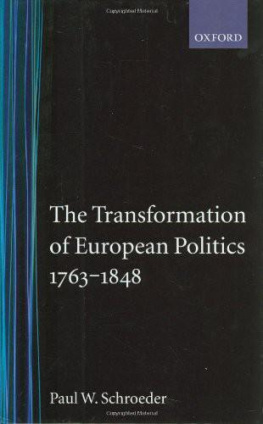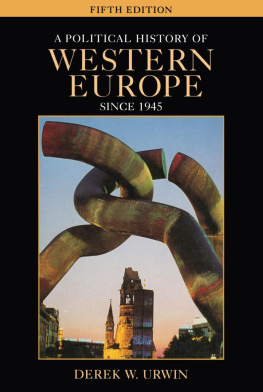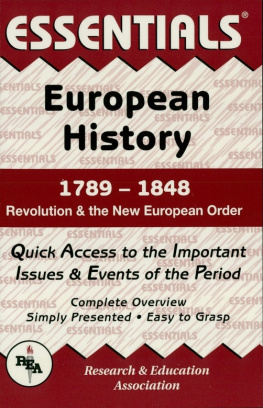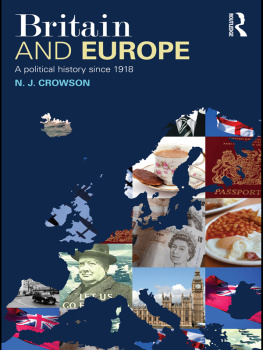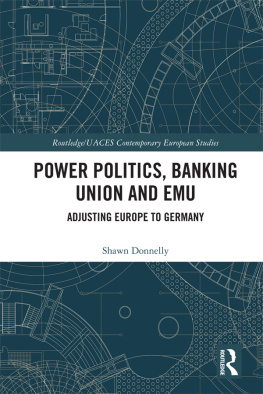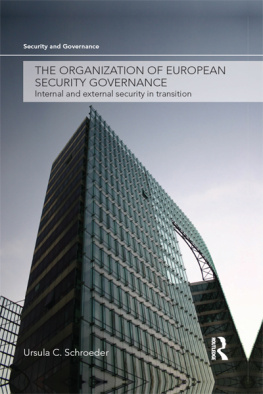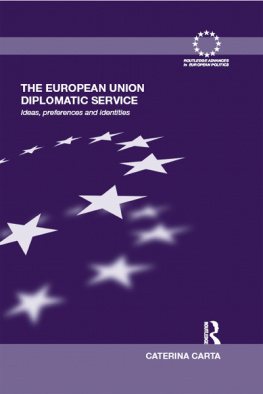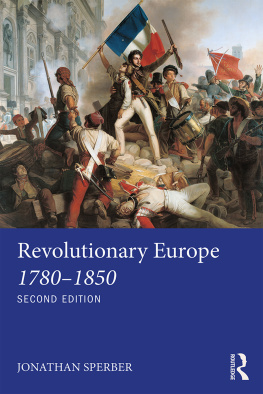THE TRANSFORMATION OF EUROPEAN POLITICS 1763-1848
BY
PAUL W. SCHROEDER
CLARENDON PRESS OXFORD
-iii-
Oxford University Press, Great Clarendon Street, Oxford ox2 6DP
Oxford New York Athens Auckland Bangkok Bogota Bombay Buenos Aires Calcutta Cape Town Dar es Salaam Delhi Florence Hong Kong Istanbul Karachi Kuala Lumpur Madras Madrid Melbourne Mexico City Nairobi Paris Singapore Taipei Tokyo Toronto and associated companies in Berlin Ibadan
Oxford is a trade mark of Oxford University Press
Published in the United States by Oxford University Press Inc., New York
Paul W. Schroeder 1994
First issued as paperback 1996
All rights reserved. No part of this publication may be reproduced, stored in a retrieval system, or transmitted, in any form or by any means, without the prior permission in writing of Oxford University Press. Within the UK, exceptions are allowed in respect of any fair dealing for the purpose of research or private study, or criticism or review, as permitted under the Copyright, Designs and Patents Act, 1988, or in the case of reprographic reproduction in accordance with the terms of the licences issued by the Copyright Licensing Agency. Enquiries concerning reproduction outside these terms and in other countries should be sent to the Rights Department, Oxford University Press, at the address above
This book is sold subject to the condition that it shall not, by way of trade or otherwise, be lent, re-sold, hired out or otherwise circulated without the publisher's prior consent in any form of binding or cover other than that in which it is published and without a similar condition including this condition being imposed on the subsequent purchaser
British Library Cataloguing in Publication Data
Data available
Library of Congress Cataloging in Publication Data
The transformation of European politics 1763-1848.
p. cm.
1. Europe--Politics and government--1648-1789. 2. Europe-- Politics and government--1789-1815. 3. Europe--Politics and government--1815-1848. D295.T73 1994 93-26439 940-dc2O
ISBN 0-19-822119-3
ISBN 0-19-820654-2 (Pbk)
Printed in Great Britain on acid-free paper by Bookcraft (Bath) Ltd. Midsomer Norton, Somerset
-iv-
PREFACE TO THE FIRST EDITION
THIS book has a simple central theme: European international politics was transformed between 1763 and 1848, with the decisive turning-point coming in 1813-15. A fundamental change occurred in the governing rules, norms, and practices of international politics. Those of the eighteenth century, with its competitive and conflictual balance of power, gave way to those of a nineteenth-century concert and political equilibrium. This change led to striking results. The most obvious and demonstrable was a dramatic decline in the incidence, scope, length, and violence of wars in the nineteenth century as compared to the eighteenth. (Overall, the ratio of battlefield deaths to the total population of Europe was about seven times as great in the eighteenth as in the nineteenth century.) Just as important were the problems solved and crises peacefully managed by nineteenth-century methods that had been insoluble without war by eighteenth-century ones. The devices of international diplomacy--alliances, treaties, conferences, even the language of diplomacy itself--changed significantly in form and intent. So did the spirit and goals of international politics. Aims considered normal and permissible in the eighteenth century were banned in the nineteenth, practices once routinely sanctioned or prescribed were proscribed. One dramatic illustration of the change, frequently illustrated in the narrative to follow, is the frequency and normality of partition schemes in the eighteenth century--plans devised and efforts made to partition various states, either eliminating them completely or reducing them to impotence or dependent status, and the disappearance of these schemes in the post-Vienna era, to be replaced by norms, rules, and efforts devoted precisely to preserving the existence and guaranteeing the independence of the actors most threatened within the system. Many more signs of a dramatic shift in the purposes and goals
____________________
For the statistics, see J. S. Levy ( 1983); for this particular calculation, Schroeder ( 1986: ).
-v-
of international politics, some obvious, others more subtle, will emerge as the story unfolds.
The change could be called a revolution. This book, in fact, will argue that in this era more real change occurred in the arena of international politics than can be demonstrated in other areas of politics and society from other more celebrated revolutions--the French, the so-called Atlantic, the Industrial, the Napoleonic, or those of 1830 and 1848. 'Transformation', however, is a more accurate and useful word for what happened, less over-used and abused than 'revolution' and without its excess baggage of emotion. Though the transforming process involved much violence and force, certain characteristics usually considered essential to great political revolutions (the violent overthrow of an existing political and social order, the destruction and replacement of the ruling class, the imposition of new political principles by force) were not present here.
Moreover, while violence on a grand and in some respects unprecedented scale--twenty-eight years of almost unbroken large- scale international war and upheaval--proved to be one necessary condition of the transition from eighteenth- to nineteenth century international politics, it was not really its main cause. International violence on a similar or greater scale had occurred before, in the Thirty Years War or the wars of Louis XIV, without producing analogous results. The vastly greater violence of the twentieth century would not do so either, at least for a long time after the two world wars. The transformation was not simply or mainly the product of war, or of one side's victory and imposition of its will and ideas in the peace, but of Europe's finding a way beyond war, transcending violence, changing the previous goals and limits of power politics. The transformation occurred first and above all in the field of ideas, collective mentalities, and outlooks. A religious or theological analogy may in today's world hinder rather than aid understanding. None the less, the best clue to the heart of this transformation is the New Testament term for repentance, the Greek metanoia, a turning around of the mind. What happened, in the last analysis, was a general recognition by the states of Europe that they could not pursue the old politics any longer and had to try something new and different. This book attempts to describe how that happened, and what it led to; to explain the process by which European statesmen, taught slowly
____________________
For brief analyses of the changes in the structure and language of international politics after 1815, see Schroeder ( 1986; 1989).
-vi-
and painfully by repeated defeats and disaster, finally and suddenly succeeded in learning how to conduct international politics differently and better. J. H. Plumb has argued that political stability need not always develop slowly by a gradual accretion of changes, but can form quickly at particular moments. The insight fits this particular story of the long gestation and sudden birth of a new international system.
If this book succeeds at all in making the case for this transformation, it could have certain implications for historiography in general. One is that historians of this era will no longer, while routinely acknowledging and/or endlessly debating and analysing other supposed revolutions (French, industrial, bourgeois, radical, Jacobin, liberal, democratic, socialist, and even Napoleonic or aristocratic), describe even greater, more drastic, and more palpable changes in international politics in such terms as 'a restoration of the old order', a 'renewal of the balance of power', a 'return to stability and monarchic solidarity', or even 'an era of reaction and repression'.

